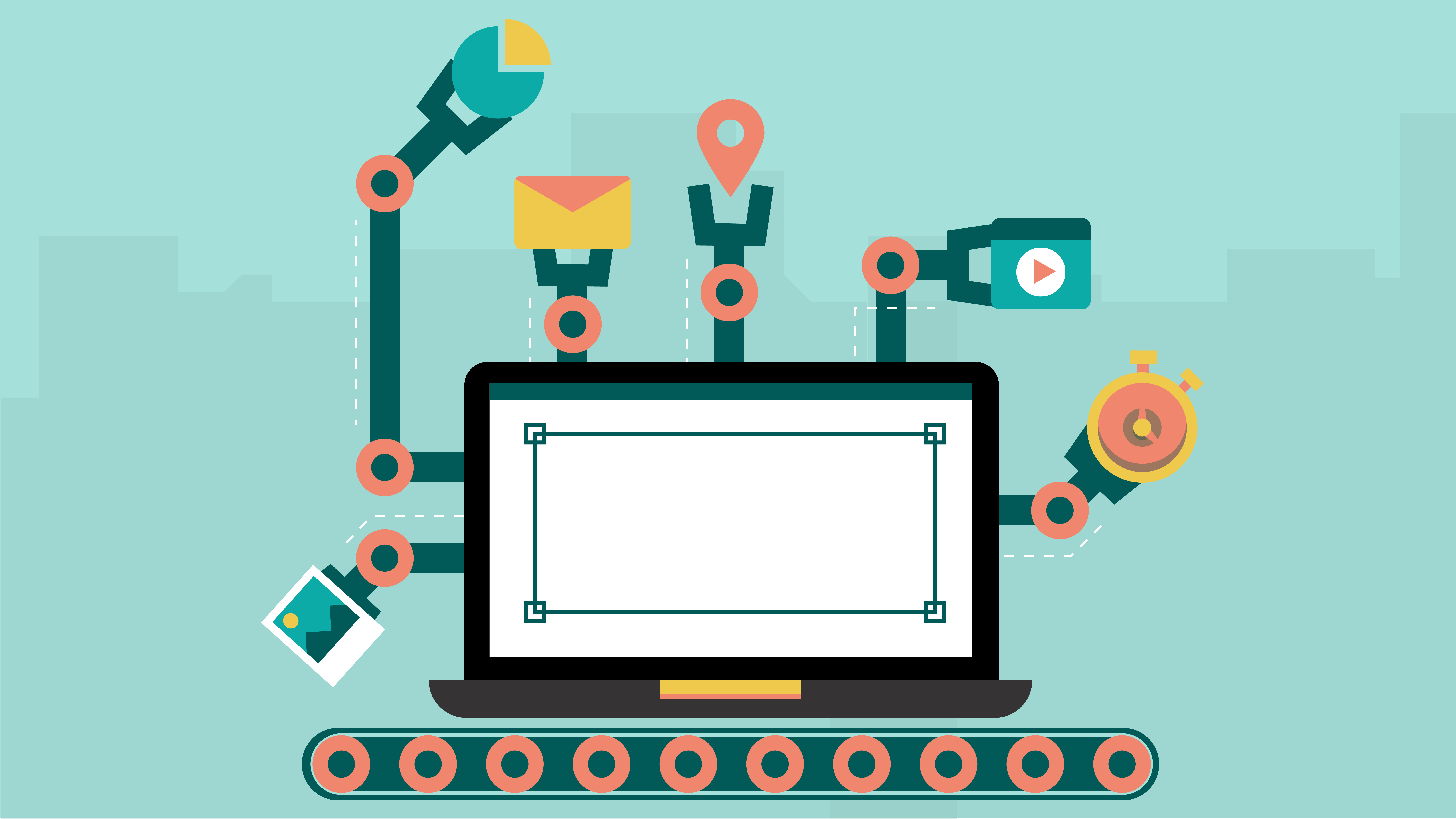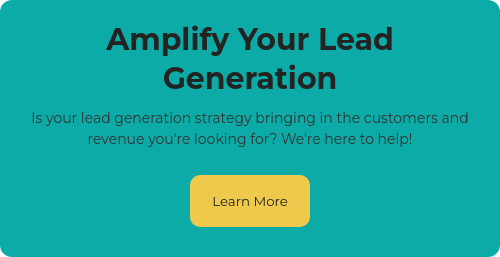In HubSpot’s 2023 State of Marketing Report, 42% of marketers said the number of campaigns they worked on each quarter increased from 2021 to 2022 — and their workload will likely increase again in 2023.
With more work to get done in the same amount of time, teams are looking for ways to automate as many tasks as they can. In fact, effective marketers are 46% more likely to use automation than marketers who reported having an ineffective strategy, according to the same HubSpot report.
If your team isn’t already using a marketing automation platform or you’re looking to switch, read on for more information on the benefits, what to consider, and the top platforms SaaS companies use.
In This Article:
- What Is a Marketing Automation Platform?
- Benefits of a Marketing Automation Platform
- Considerations When Evaluating a Marketing Automation Platform
- Top Marketing Automation Platforms
What Is a Marketing Automation Platform?
A marketing automation platform is software that automates marketing activities like email programs and lead generation, captures information about leads and customers, and helps teams understand campaign performance.
Sometimes referred to as a marketing database, a marketing automation platform stores information about marketing activity across channels and how contacts, leads, and customers are interacting with your brand. This information enables marketing teams to seamlessly personalize programs and experiences based on who someone is and how they’ve engaged with your website, emails, ads, and content.
Because marketing automation platforms support lead generation, they can also score leads and integrate with CRM software to route leads to your sales and customer success teams automatically.
Benefits of a Marketing Automation Platform
Efficiency
Automating tasks gives your marketing team more time for strategic and creative thinking, which should translate into stronger campaigns and happier employees. Automation also ensures actions happen exactly when they’re supposed to, rather than when someone can get to it.
Personalized Lead Nurturing and Customer Engagement
Marketing automation platforms not only capture lead information, but also enable your team to create complex nurture and customer engagement programs that are personalized based on a contact’s demographic information as well as their marketing and product activity. As a very basic example, if someone reads content about a certain topic, they can automatically receive an invitation to a webinar about a related topic.
Highly Targeted Audiences
With all the valuable information available in a marketing automation platform, you can create highly targeted audiences for marketing and ad campaigns. Contacts can also automatically join or leave your audience based on certain attributes you define, so whatever content or message goes to that audience is always relevant.
Analytics and Reporting
As the hub of all your marketing activity, your marketing automation platform can measure the success of your campaigns and activities, helping you quickly understand performance and optimize based on learnings.
Automated Lead Scoring and Routing
Not all leads are created equal — and many marketing and sales teams collaborate on a lead scoring model to help them prioritize who to reach out to. Scoring is associated with demographic attributes as well as marketing and product activity, and marketing automation platforms can automatically “stamp” a lead with a certain score based on who they are and how they’ve engaged with your marketing and product. It can also integrate with your CRM to route leads to the appropriate sales or customer success rep.
Privacy and Data Protection Compliance
With many countries and U.S. states enacting data protection and privacy laws, marketers need a way to stay compliant. Marketing automation allows teams to track who has opted into — or out of — your company, storing their personal data or targeting them with emails, ads, or texts.
Built-in Testing
Continuous testing is a cornerstone of marketing, and marketing automation platforms have A/B and multivariate testing features, so you can easily test different emails, ads, or full campaigns. This enables your team to learn what’s resonating with your audience and optimize your efforts.
Considerations When Evaluating a Marketing Automation Platform
Integration With Your Tech Stack
Just like sales and marketing teams, it’s essential for a SaaS company’s CRM and marketing automation platform to work seamlessly together. In fact, your marketing automation platform should play well with your entire marketing and/or PLG tech stack.
Scale of Your Marketing Programs
When evaluating marketing automation platforms, consider where your team is today as well as where you want to go in the future. Can the platform effectively support your current marketing activities? Can it easily scale with you as the team and company grow?
Expertise of Your Marketing Team
The other important aspect to consider is the expertise and resources you have on the marketing team. Some marketing automation platforms are very easy for anyone to use; others require deep technical knowledge and likely a marketing operations role on the team to get it set up and continuously running properly.
Cost and ROI
Cost is a huge factor when evaluating a new platform, but considering the return on your investment is also important. How are your marketing programs currently impacting your revenue? What’s the potential impact of the added efficiency of automation? How many hours would your team save?
Top Marketing Automation Platforms
There are many marketing automation platforms to choose from, each with slightly different functionality as well as pros and cons. Below are the most common platforms SaaS marketing teams use.
Marketo
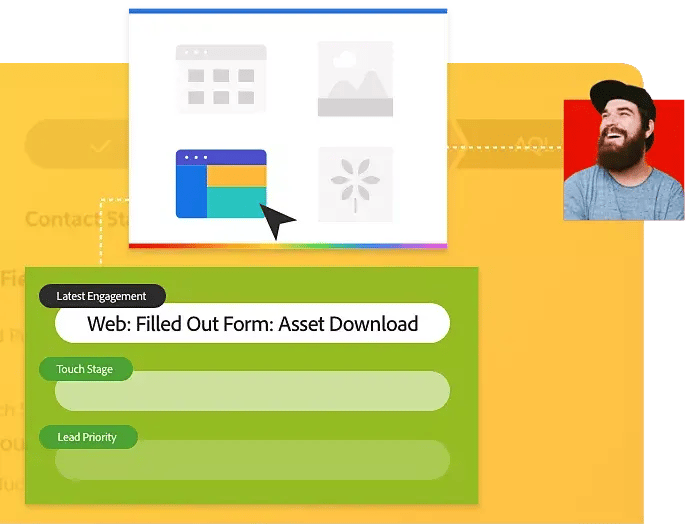
The OG in the space, Marketo is now owned by Abode, so what was once a no-so-nice interface is now a much-improved user experience. Marketo has always excelled at automated workflows, lead generation, and email marketing. But now it allows teams to trigger activities across organic social, paid media, and SMS and personalize experiences across the customer journey using real-time activity data and AI.
Marketo has traditionally been the top choice for B2B SaaS marketing teams because of its powerful features and seamless integration with enterprise CRMs like Salesforce.
HubSpot
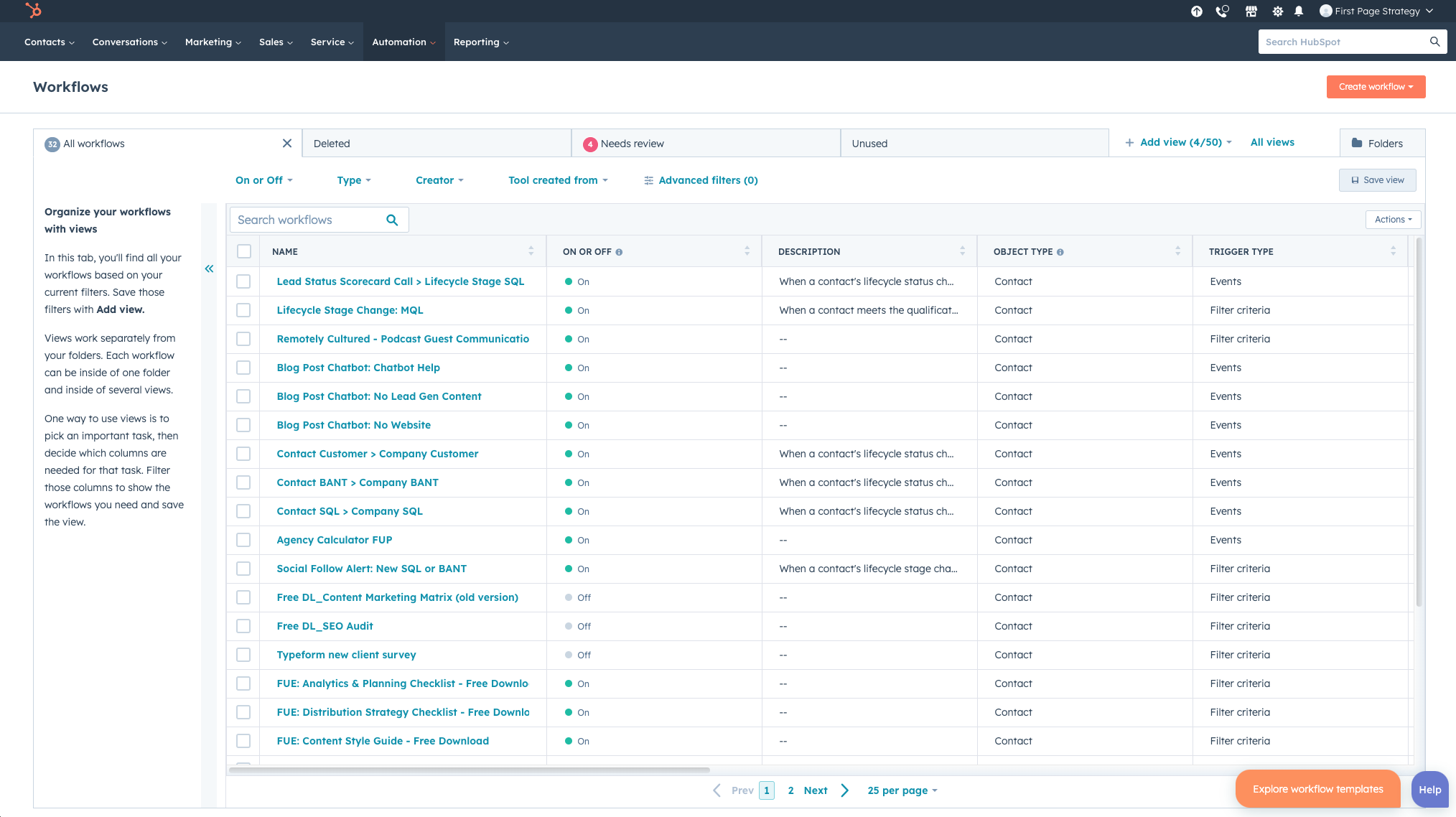
Teams love HubSpot (First Page Strategy included) because it’s an all-in-one platform that includes what they call “hubs” for marketing automation and activities, content and website management, customer support, and a CRM. It’s highly customizable because you can choose which features your company needs and at what level. So, if you don’t have a big website but have lots of leads and customers, you can have a small CMS subscription and a large CRM subscription.
HubSpot is very user-friendly and has endless resources available for all aspects of marketing and how to use the platform. Many smaller teams choose HubSpot because it can be tailored to current needs and scale as the team grows. Plus, it doesn’t require deep technical knowledge to use.
Salesforce Marketing Cloud
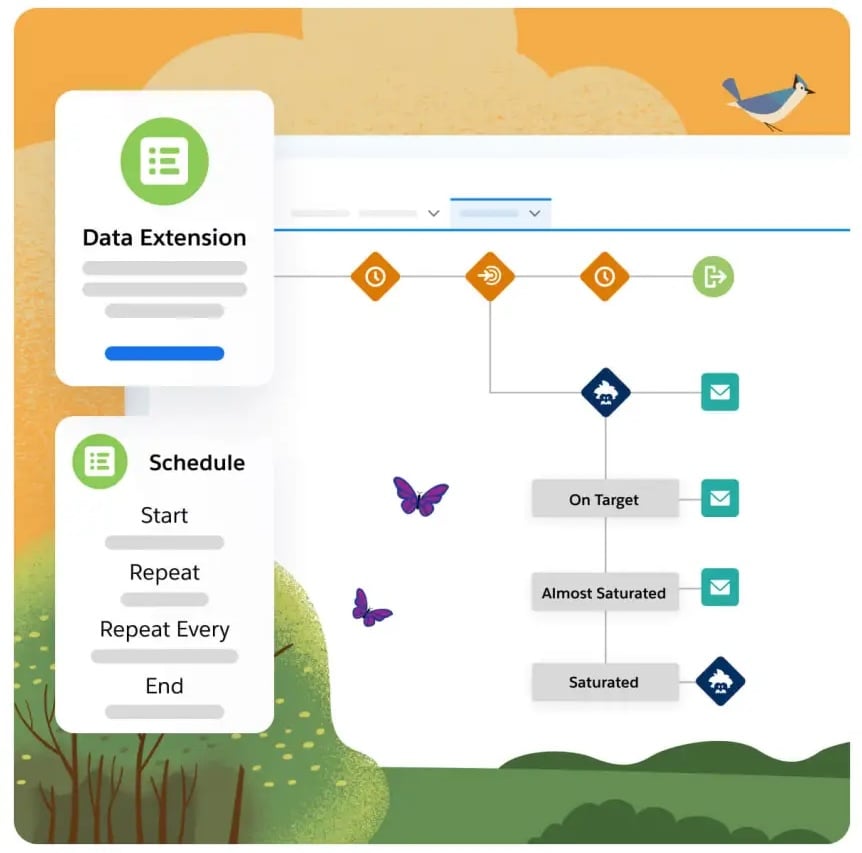
As the top CRM, Salesforce naturally expanded to create Marketing Cloud, allowing users to see all marketing and sales activity for every lead, customer, and company in one place. This makes collaboration between marketing and sales smoother and the ability to personalize marketing programs easier.
Marketing Cloud uses Einstein, Salesforce's AI platform, to power many features, resulting in automated buyer journeys, lead scoring, and campaign optimization as well as deep audience insights and activity analysis.
Ready to Choose Your Marketing Automation Platform?
Our team of lead generation experts can help you pick the right platform and set you up for success. Once you’re up and running, we’ll create automated workflows, buyer journeys, and content that lets leads flow and turns contacts into customers. Explore how we can help you with marketing automation and lead generation.
